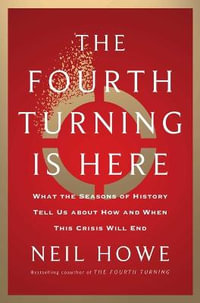Industry Reviews
"Bold, ambitious, and stunningly detailed....Heinz methodically describes the entwined transpacific history of the game, its many different players (Chinese, white women, Jewish American mothers, Airforce wives, Japanese Americans, and Chinese Americans), and its production, marketing, and consumerism in China and the United States, the game's cultural evolutions, its cross-over appeal, and importantly, the significance that the game had on the formations of
race, gender, ethnicity, and national belonging....Mahjong is both the star and the setting of a compelling study of American modernity during the twentieth century." -- Karen Kuo, Pacific Historical
Review
"Annelise Heinz's use of mahjong as a material cultural lens for American history is ingenious. The game enjoyed a fad in the 1920s and was then revived in the postwar period. How this import that could have fallen away entirely...developed a particular meaning and longevity for different Americans is a fascinating narrative that Heinz explores deftly....Heinz draws extensively on oral histories that explore who played it and when, and its popularity among the
subjects. But more interesting is Heinz's method of using mahjong as a motif to demonstrate particular identity and how this Chinese import could come to be seen by some Jewish women as 'our game.'
Simultaneously exotic and domestic, it held insider/outsider status, a parallel for both Asian and Jewish Americans after World War II....Heinz offers a promising template for considering a popular culture item's deeper meanings." -- Katrina Gulliver, Journal of American History
"In this well-researched probe into the mahjong fad of the 1920s and its periodic revivals throughout the 20th century, Heinz offers a solid study of Orientalism, race, class, and gender as shaped and negotiated within US popular culture. Using newly developed marketing techniques, promoters of the mahjong fad appropriated an invented image of the game as an ancient Chinese practice....Despite the fact that mahjong was a relatively modern game that surfaced in
Chinese urban centers in the late Qing era before being incorporated into the American market, its promoters pretended it had deep roots in ancient Confucian times....[Heinz] highlight[s] how wealthy
Americans transplanted this game and its associated cultural materials for the purposes of establishing a racially superior American identity....In each setting, Heinz unearths how players used it to establish community and negotiate dominant racial, gendered, and class identities." -- Choice
"This expertly crafted material history asks what can we learn about the making of modern American culture from a parlor game? As it would turn out, quite a lot. Written in a style as engaging and lively as the subject matter itself, Mahjong investigates how the boundaries of social inclusion and exclusion evolved throughout the 20th century in complicated and often surprising ways. Ranging from the factories in which the tiles were produced to the
parlors in which the game is played, Mahjong illustrates the ways in which seemingly peripheral spaces are central to the manufacturing of cultural history." -- Elizabeth Rush, Oregon Book Awards
"What could have been presented as fun and therefore trivial, the game of mahjong, in the capable hands of Annelise Heinz, instead emerges as a serious matter in cross-cultural history, linking China and the United States. This book makes women's history, American Jewish history, and the history of class and leisure subjects that inform each other. Through deep research and clear writing, Heinz drives home the point that it is not just a game." -- Hasia Diner,
New York University
"In a work of dazzling richness and scope, Annelise Heinz reveals how multiracial makers, players, and marketers of mahjong negotiated and shaped social change in everyday life for a century. Comparing the rounds played by Chinese men detained at Angel Island with the tournaments held by Japanese Americans in World War II incarceration camps underscores the meanings of recreation in confinement. Evoking the delights of the game, this fascinating study also
shows how Jewish women adapted mahjong, cultivating ties of female friendship and ethnic community, while also claiming Americanness and modernity." -- Valerie Matsumoto, University of California, Los
Angeles
"Annelise Heinz's Mahjong is a beautifully written, deeply researched history of mahjong. She examines the transnational history of this game and how it has moved across national, racial, cultural, and gendered boundaries while at the same reformulating and reinforcing some of these same borders. This is a history that combines the study of leisure with labor, consumption with performance, as well as race and ethnicity with class and gender. It offers
fresh interpretations of modern America by focusing on the unlikely journey of a game." -- Judy Tzu-Chun Wu, author of Radicals on the Road
"In this lively history, Annelise Heinz shows us that mahjong is more than a game. In her deft hands, it illuminates modern consumerism, Orientalist fantasy, ethnic identity, and women's self-fashioning across the twentieth century. A richly researched, happily readable book." -- Joanne Meyerowitz, author of How Sex Changed
"An enjoyable and informative work that's highly recommended for any reader interested in the history of mahjong specifically or 20th-century U.S. cultural history generally."--Library Journal
























